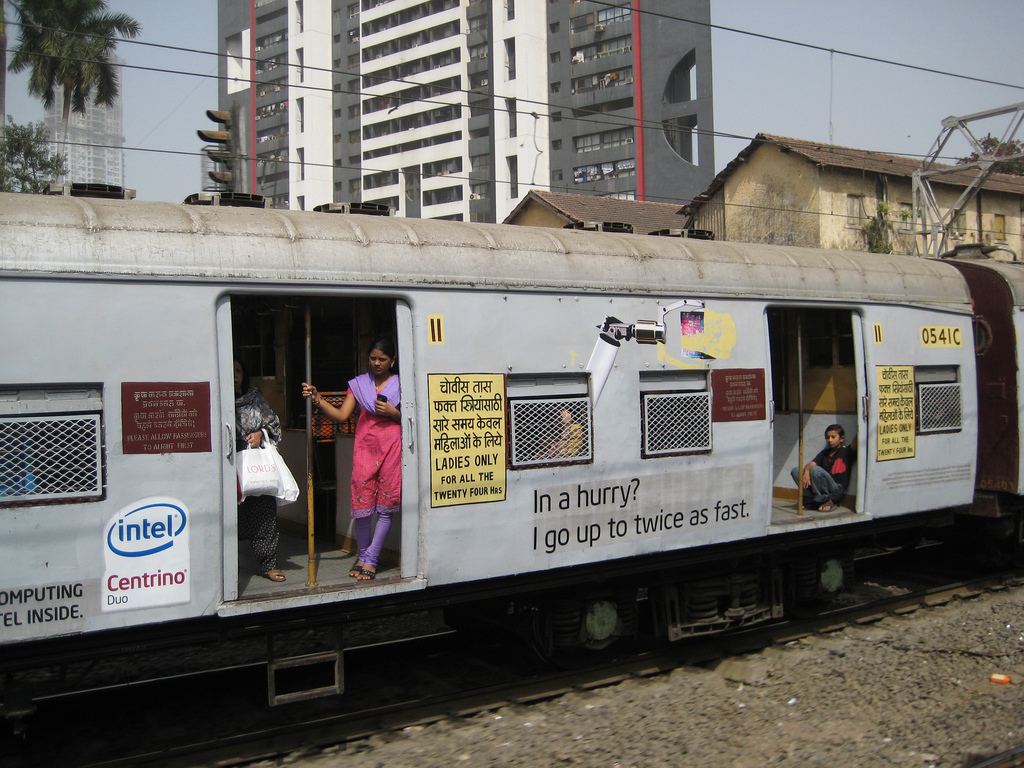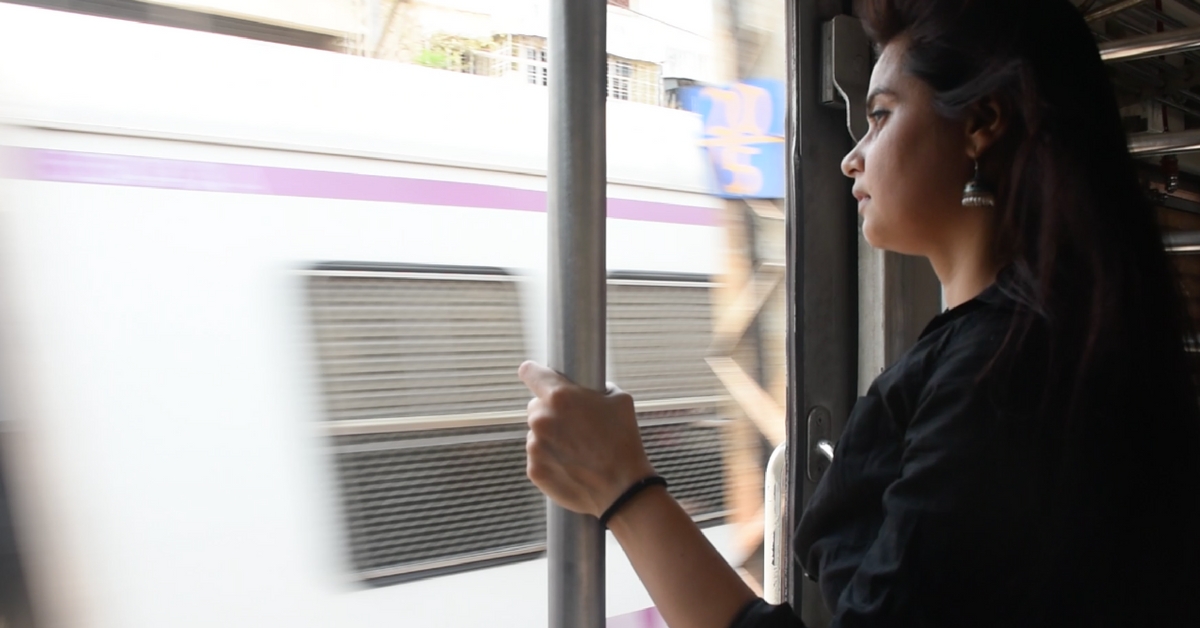Mumbai locals form a lifeline for hundreds of thousands of the city’s daily commuters. However, overcrowding and lack of adequate features have made the service unsafe for women, despite designated services. It’s time to make Mumbai’s locals safer and more accessible.
You will love and hate Mumbai with the same intensity, but never relive Mumbai. Every city has a word that defines it. For me, Mumbai is “Alive”.
I have been travelling by Mumbai locals long enough to represent the voice of women who commute by train on a daily basis. Local trains are our lifeline. They are not just a means of transport, but also a way of life. Those familiar faces you see every morning comfort you. The pace at which you jump into a moving train ,and the skill of making your way out in one piece with all your belongings, is an art. Women is this city have somehow made peace with this chaos, but the situation is getting more suffocating and unsafe with every passing month.
Maybe you are lucky enough to have never encountered an unpleasant incident, but that doesn’t mean it doesn’t happen. We need collective strength to fight this nuisance. The government is making an attempt to make train commutes safe by allocating a police constable in the ladies compartment during late-night trains, but is this enough?
The number of sexual harassment and eve teasing cases have almost doubled. I am not saying that the authorities are not trying, but we need some practical measures urgently. In a recent incident, a 22-year-old student was molested on her way back from Churchgate station. The culprit was caught on CCTV footage, but by the time the authorities took action, he was out and gone.
The gap between the crime and reporting is so long that most of the cases are never solved.

I was always indifferent to this chaos for years. It was a mess, but I learned to ignore it, until once I faced it myself. I was travelling by Harbour Line around late evening. I boarded the train from CST station and was busy reading. A man boarded the ladies compartment at Cotton Green station and stood at the edge of the gate (a very common scenario).
As the train started moving, he came towards me. With a grinning smile, he said, “oh hot stuff”, and tried sitting next to me. His only purpose was to make me and the three other women in the compartment feel uncomfortable, and he managed to accomplish it. He got off at the next station, but I thought about this incident for many days. His audacity disturbed me. His smile had screamed, “I can get away with anything.” I couldn’t complain, because technically, he did not touch me, but his words and tone were haunting enough. Anything could have happened.
Why do we wait for the worst before taking action? We expect it to happen, but it doesn’t stop you from getting angry.
Women have the burden to protect themselves all the time.
For a woman who leaves her house at 7 AM, and returns after almost 12 hours, in the evening, security in local trains is not a trivial issue. Most of the cameras installed are usually not monitored, or end up getting damaged by hawkers. The number of working women is increasing by many folds. We need the right infrastructure to make us feel safe.
We also need more space. The compartments are too cramped, and bursting with people during rush hours. The authorities should increase the frequency of ladies special trains during peak hours, or increase the number of ladies compartments. When women represent 50 % of the vibe of this city, why not give them equality in terms of their daily commute?
I love my city. The only reason we shot this video was to talk about issues that need to be addressed on priority. Problems without names tend to stay inadequately addressed.
Here a few solutions from the women who commute by train on a daily basis.
- Involve women in your initiatives and safety drives. Most of the initiatives introduced by the Railway Protection Force (RPF) and Government Railway Police Force (GRPF) go unnoticed due to lack of involvement from women. The more women talk and discuss about the security helplines and safety measures, the more natural it will seem to them at the time of panic.
- We have conveniently moved to the digital world. Everything has a GPS and App function. Use of intelligent technology in the form of quick safety alert features, location alert, and free WiFi in the local trains is an effective way of reaching out to the officials. Official apps introduced in the past are not very functional. Also, poor connectivity and lack of WiFi in the compartments makes them very difficult to navigate quickly.
- Installation of cameras has received a very lukewarm response from commuters. Some feel it is great, while others seem to be uncomfortable by the fact that they won’t have any privacy in the ladies compartment. It is always going to be questionable. According to most of the women, the entry/exit points are the ones that need vigilance. Installation of safety buttons instead of chains will be more convenient. An immediate alert to the next railway station will help in arresting culprits and solving cases quicker.
Mumbai has always given freedom and strength of character to the women of this city. Safety in local trains needs to be addressed on priority basis. Current efforts are in the right direction, but they need to reach out to the right people with the correct context to make a difference.
If you have suggestions or comments, feel free to reach out on 30ish’s Facebook page.
Like this story? Or have something to share? Write to us: contact@thebetterindia.com, or connect with us on Facebook and Twitter.
NEW: Click here to get positive news on WhatsApp!
If you found our stories insightful, informative, or even just enjoyable, we invite you to consider making a voluntary payment to support the work we do at The Better India. Your contribution helps us continue producing quality content that educates, inspires, and drives positive change.
Choose one of the payment options below for your contribution-
By paying for the stories you value, you directly contribute to sustaining our efforts focused on making a difference in the world. Together, let's ensure that impactful stories continue to be told and shared, enriching lives and communities alike.
Thank you for your support. Here are some frequently asked questions you might find helpful to know why you are contributing?

